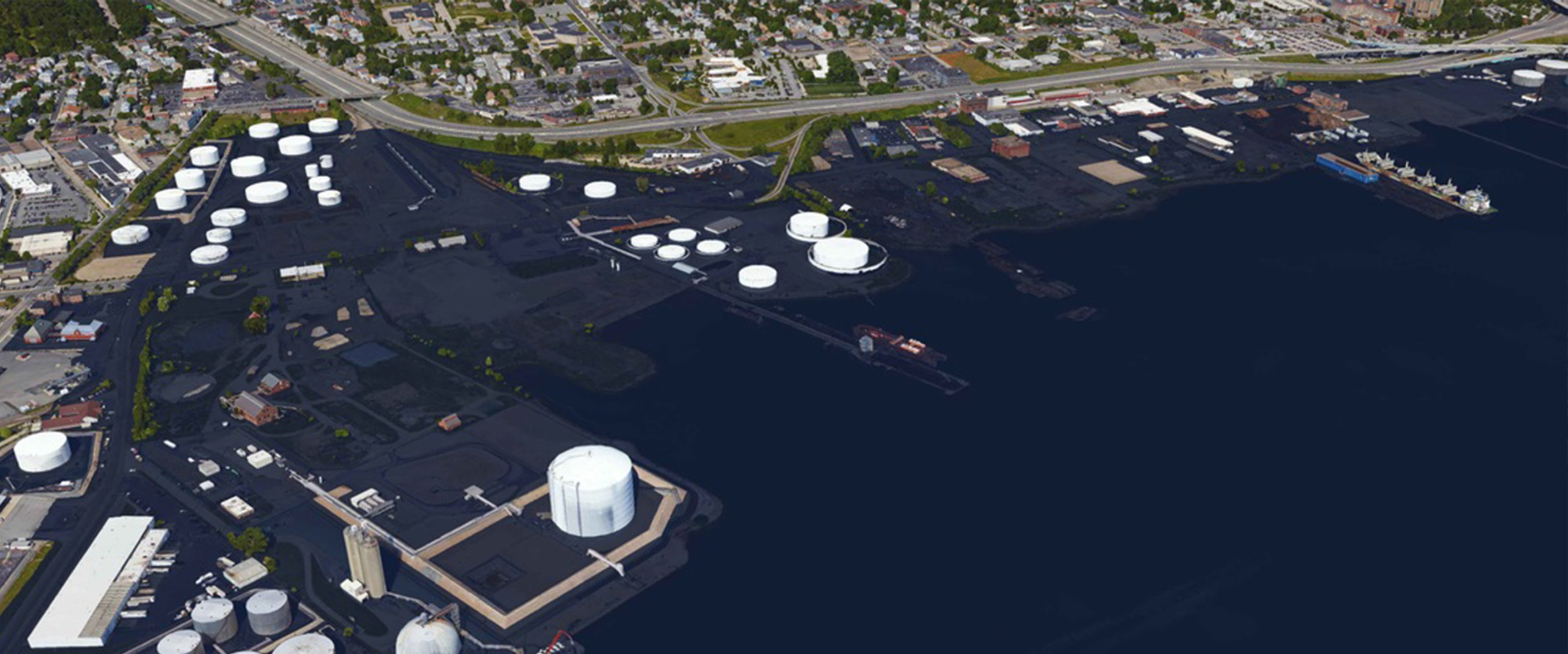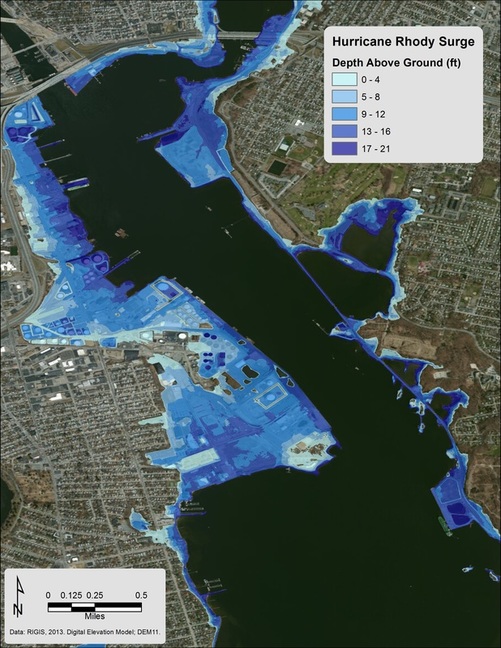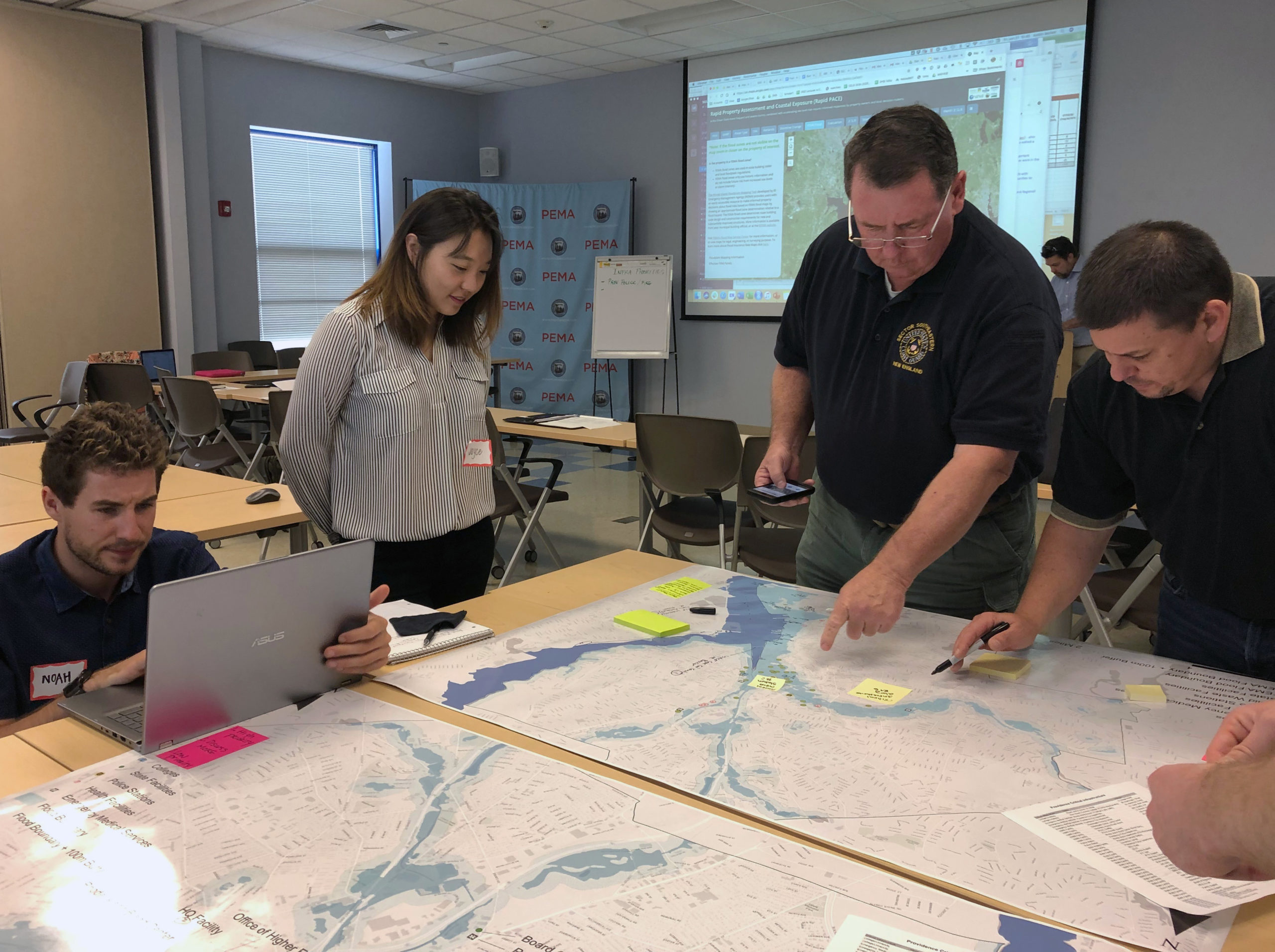Modeling a Resilient Future
Sea level rise, along with higher storm surges resulting from increasing storm intensity and frequency, threaten the sustainability of maritime transportation infrastructure in coastal areas. In Rhode Island, major storms impacting the maritime infrastructure of the state result in economic costs, damages to the environment, and negative consequences on resident’s quality of life. In the coming decades, tough decisions will need to be made about resilience investment measures around the state.
This project, conducted by Principle Investigators Austin Becker and Richard Burroughs of the Department of Marine Affairs at University of Rhode Island, with support from the RI Dept. of Transportation (RIDOT) and the Federal Highway Administration (FHWA) and in coordination with the State Freight Plan Working Group and a large steering committee of concerned agencies assessed stakeholder perceptions of vulnerability for the state’s major maritime transportation infrastructure, as well as their recommendations for long-term risk-reduction strategies. AREA Researchers provided stakeholder and decision modeling using the collaborative decision-modeling tool: Wecision. This project focused on the Port of Providence to develop and test a method that can subsequently be used on other critical sites.



